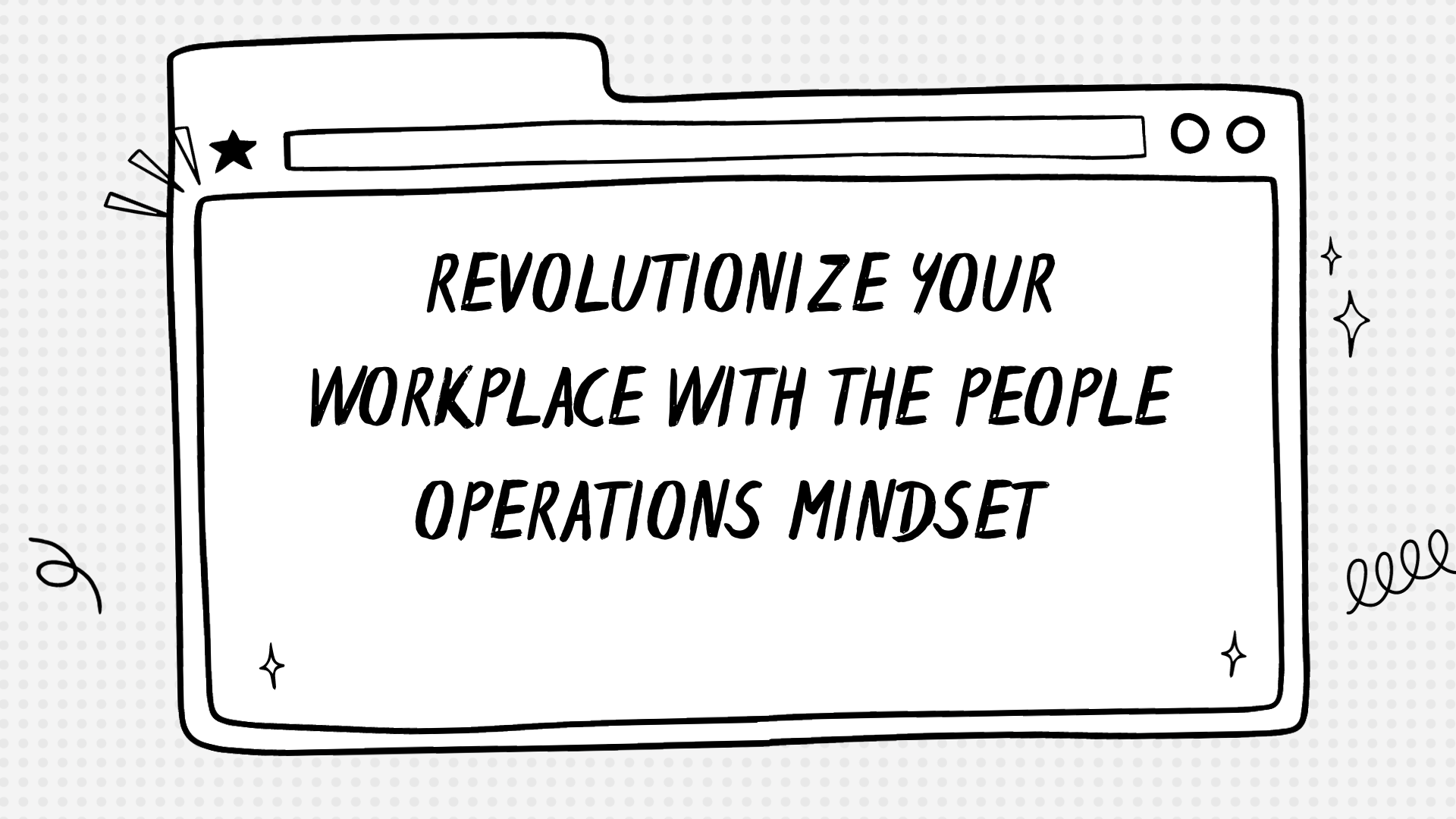Ever wrestled with finding just the right words to describe your performance during a review? You’re not alone. Like many, I’ve grappled with this challenge too. Through soaking up a wealth of research and tapping into personal experiences, I’ve unearthed the game-changing impact of stellar self-appraisal comments.
Consider this blog as your trusty roadmap towards penning insightful self-appraisal feedback for your performance assessment – supported by 21 hand-picked sample phrases that shine a light on various skill sets.
Key Takeaways
- Self-appraisal comments are an important part of the performance review process, allowing employees to evaluate their own job performance and provide feedback.
- Developing strong communication skills, being reliable and punctual, taking ownership of tasks, and actively participating in teamwork are key areas to address in self-appraisal comments.
- It is important to highlight accomplishments and set meaningful goals for personal growth and development during the self-appraisal process.
What is a Self-Appraisal for Performance Review?
A self-appraisal for performance review is a process in which individuals evaluate their own job performance and provide feedback on their strengths, areas for improvement, accomplishments, and goals.
Definition
A self-appraisal for a performance review is an assessment where employees evaluate their own work. This analysis includes identifying personal strengths, weaknesses, achievements, and areas for improvement.
It is more than just rating your abilities; it provides a platform to reflect on your job role and establish what you’ve learned and accomplished in the years gone by. Employees use this tool as a way to express their perspective about work progress alongside any challenges or obstacles faced throughout the evaluation period.
In essence, self-appraisals are critical for encouraging open communication between employees and management to align everyone’s understanding of performance expectations and goals at the workplace.
Purpose
Conducting a self-appraisal for a performance review serves an essential function in the professional world. It allows employees to recognize their strengths, pinpoint areas of improvement, and reflect on their growth and development.
This process not only boosts self-awareness but also empowers individuals to take ownership of their job performance.
Moreover, it contributes significantly to constructive dialogue between managers and team members during employee reviews. By reviewing one’s work objectively, we can highlight specific achievements and set realistic goals and objectives for the future while addressing potential improvement areas or weaknesses actively.
In this way, self-appraisals pave the path towards career growth by ensuring that progress aligns with performance metrics effectively.
Benefits for the team and manager
The process of self-appraisal in a performance review provides substantial advantages to both teams and managers. Fostered by this approach, open lines of communication can reinforce team collaboration.
Employees gain the chance to voice individual ideas, accomplishments or concerns, promoting overall transparency within the group. This act encourages personal growth that will have a positive impact on job performance.
Managers also stand to benefit significantly from employee’s self-assessments. It grants them insight into an employee’s perception of their own strengths and weaknesses as well as their career goals.
More importantly, it allows for more efficient planning regarding development opportunities and improvement areas to enhance productivity levels across the board.
Tips for Writing a Self-Appraisal
When writing a self-appraisal, it is important to first determine the specific requirements and criteria that will be evaluated. Next, evaluate your strengths and highlight them in your self-appraisal comments.
Additionally, address any areas for improvement or weaknesses that you have identified. Don’t forget to showcase your accomplishments and achievements during the review period. Lastly, set goals for yourself moving forward to demonstrate growth and development.
Determine requirements
I determine the requirements for my self-appraisal by considering the expectations and objectives set by my manager. This helps me align my self-assessment with the performance review process effectively. Here are some key points to consider:
- Review job description and performance goals
- Identify specific tasks and responsibilities
- Understand performance metrics and targets
- Consider any additional requirements or expectations communicated by the manager
- Reflect on previous feedback received from supervisors or colleagues
- Seek clarification or guidance if needed
Evaluate strengths
When evaluating my strengths for the self-appraisal, I should consider the following:
| Quality | Description |
|---|---|
| Communication Skills | Excellent ability to convey ideas and information. |
| Reliability & Punctuality | Consistently reliable and punctual. |
| Ownership & Initiative | Strong drive in taking on and owning new tasks. |
| Attendance | Regular presence with minimal sick leave. |
| Teamwork | Collaborative and willing to assist team members. |
| Creativity & Innovation | Demonstrated problem-solving with innovative solutions. |
| Attention to Detail | Meticulous in task completion. |
| Job Knowledge & Learning | Extensive knowledge and continuous learning in job role. |
| Customer Satisfaction | Achieving high levels through excellent service. |
| Growth & Development | Proactively seeking out learning and development opportunities. |
Address areas for improvement
Improving upon weaknesses is an important aspect of self-appraisal. It helps individuals grow and develop in their careers. Here are some areas for improvement to consider:
| Skill | Description |
|---|---|
| Time Management | Prioritize tasks and adhere to deadlines. |
| Organization | Implement systems for tracking crucial information. |
| Communication | Enhance verbal and written clarity. |
| Conflict Resolution | Resolve conflicts with calm, mutually beneficial approaches. |
| Technical Skills | Learn relevant technologies and software. |
| Leadership Abilities | Develop and exhibit leadership qualities. |
| Collaboration | Value teamwork and contribute positively. |
| Problem-solving | Identify and address challenges efficiently. |
| Adaptability | Remain flexible and open to new ideas. |
| Stress Management | Utilize techniques to manage work stress. |
Highlight accomplishments
I have achieved several notable accomplishments over the past year, including:
- Successfully leading a team project that resulted in a 20% increase in productivity.
- Implementing new strategies that improved customer satisfaction ratings by 15%.
- Developing and launching a new product that exceeded sales targets by 25%.
- Consistently meeting or exceeding monthly sales quotas for the entire year.
- Receiving positive feedback from clients for my exceptional problem-solving skills.
- Taking initiative to streamline processes, resulting in a time savings of 10 hours per week.
- Collaborating with cross-functional teams to successfully execute a major company-wide initiative.
Set goals
I believe in the power of setting goals to drive my performance and personal growth. Here are some key areas where I can set meaningful goals for myself:
| Objective | Consistently meet deadlines and fulfil commitments. |
|---|---|
| Enhanced Communication | Effectively convey ideas and information. |
| Improved Reliability | Consistently meet deadlines and fulfill commitments. |
| Ownership & Initiative | Proactively identify opportunities for improvement. |
| Excellent Attendance | Minimize absences and ensure punctuality. |
| Teamwork Spirit | Collaborate and support team members. |
| Creativity & Innovation | Think outside the box and propose new ideas. |
| Attention to Detail | Ensure accuracy and prevent errors. |
| Continuous Learning | Stay updated with industry trends. |
| Customer Satisfaction | Deliver exceptional service or products. |
| Growth & Development | Enhance skills and knowledge. |
Sample Self-Appraisal Comments
When it comes to communication, I have consistently kept my team informed about project updates and deadlines, ensuring everyone is on the same page. My reliable nature allows me to meet deadlines and produce high-quality work consistently.
I take ownership of my tasks and always show initiative by finding ways to improve processes and solve problems proactively. Attendance has been excellent throughout the year, with no instances of tardiness or unplanned absences.
I actively participate in team collaboration activities, fostering a positive teamwork environment. My creative approach has led to innovative solutions and ideas that have positively impacted our projects.
Attention to detail is one of my strengths as I pay close attention to even the smallest aspects of my work, resulting in error-free deliverables. In terms of job knowledge, I continuously strive to expand my skills through professional development opportunities.
Customer satisfaction is a top priority for me, always going above and beyond to ensure their needs are met. Finally, I am focused on personal growth and development, setting ambitious goals for myself and.
Communication
Effective communication is a crucial skill for any employee and plays a significant role in performance reviews. I believe that clear and concise communication helps foster better collaboration, enhances team productivity, and leads to stronger relationships with colleagues and clients.
During my self-appraisal, I have reflected on my ability to communicate both verbally and in writing. I have consistently demonstrated effective communication by actively listening to others, asking clarifying questions when needed, and conveying ideas or instructions clearly.
By being an open communicator, I have been able to establish trust within the team and ensure that everyone is on the same page.
Reliability
Reliability is a crucial aspect of job performance that employers look for in their employees. Being reliable means consistently delivering high-quality work, meeting deadlines, and being dependable in all aspects of the role.
It shows that you can be trusted to complete tasks efficiently and effectively. By demonstrating reliability, you build trust with your team and manager, which is essential for a productive work environment.
Emphasizing your track record of meeting commitments and following through on responsibilities will showcase your dependability during the performance review process. Moreover, highlighting instances where you went above and beyond to ensure timely completion of projects or tasks further reinforces your reliability as an employee.
Ownership and initiative
I take ownership of my work and consistently demonstrate initiative in tackling new tasks. I proactively seek out opportunities to contribute to the team’s success and take responsibility for my assigned projects.
By taking ownership and showing initiative, I am able to not only meet but exceed expectations in delivering high-quality work. Whether it’s taking on additional responsibilities or finding innovative solutions to problems, I am committed to going above and beyond in my role.
This proactive approach helps me make a positive impact and drive results within the organization, contributing to its overall success.
Attendance
To effectively evaluate my attendance, I need to review my track record and identify any areas for improvement. It is important that I maintain regular and punctual attendance to demonstrate my commitment and reliability as an employee.
By consistently showing up on time and being present at work, I contribute to the overall productivity of the team. Additionally, good attendance helps build trust with my manager and colleagues, as they rely on me to fulfill my responsibilities.
To enhance my attendance, I will make a conscious effort to prioritize work commitments and manage personal obligations more efficiently.
Understanding the impact of attendance on job performance is crucial for self-appraisal. By maintaining good attendance, I ensure that projects stay on track and deadlines are met promptly.
Good attendance also allows me to actively participate in team meetings and collaborate with colleagues effectively. Furthermore, it showcases a strong work ethic which can positively affect relationships with clients or customers who depend on timely service or support.
Teamwork
In a corporate setting, teamwork is essential for achieving success and reaching goals. Collaborating effectively with colleagues improves overall productivity and creates a positive work environment.
By working together as a team, we can pool our diverse skills and knowledge to tackle complex projects and solve problems more efficiently. Effective teamwork fosters open communication, encourages different perspectives, and promotes innovation within the organization.
It also contributes to improved employee morale and job satisfaction. Emphasizing the importance of teamwork in self-appraisal comments shows that you recognize its value and actively contribute to a collaborative work culture.
Creativity
Creativity plays a vital role in performance reviews as it demonstrates an employee’s ability to think outside the box, generate innovative ideas, and solve problems in unique ways.
By fostering a creative mindset, individuals can contribute fresh perspectives and bring new solutions to the table. Being open to new possibilities not only benefits the individual but also enriches team collaboration and boosts overall productivity.
It is essential for employees to showcase their creativity by highlighting specific instances where they have applied innovative approaches or contributed original ideas that have had a positive impact on projects or processes.
Attention to detail
I always prioritize attention to detail in my work. By meticulously reviewing every aspect of a task or project, I ensure accuracy and quality. This includes checking for spelling and grammar errors, verifying data for accuracy, and following instructions precisely.
Paying close attention to detail demonstrates my commitment to delivering high-quality results and helps me avoid costly mistakes. It also shows that I take pride in my work and strive for excellence in everything I do.
Job knowledge
I believe that having a strong understanding of your job and the responsibilities that come with it is essential for a successful performance review. It shows your dedication to your role and your commitment to constantly improving yourself.
When evaluating job knowledge, consider how well you understand the tasks and procedures related to your position. Are you up-to-date with industry trends? Have you taken any additional training or certifications to enhance your skills? Providing evidence of your expertise will demonstrate to your manager that you are a knowledgeable and valuable asset to the team.
Remember, in order to showcase your job knowledge effectively, be specific and provide examples of situations where you utilized this knowledge successfully. Instead of simply stating “I have good job knowledge,” explain how this knowledge has helped you solve problems, make informed decisions, or contribute innovative ideas.
Customer satisfaction
I strive to ensure customer satisfaction in all aspects of my job. By providing excellent service and addressing their needs, I aim to exceed their expectations. Feedback from customers is valuable for me to understand areas of improvement and implement necessary changes.
Building strong relationships with customers is a priority, as it contributes to customer loyalty and the success of the organization.
Growth and development
In my self-appraisal, I take the time to reflect on my growth and development throughout the review period. It’s important for me to acknowledge any progress I have made in terms of acquiring new skills or knowledge.
By setting goals for myself and actively seeking opportunities for growth, I am able to continuously improve and contribute more effectively to the team. Tracking my achievements allows me to see how far I’ve come and motivates me to keep pushing myself further.
Self-Appraisal Template
The Self-Appraisal Template provides a structured format for employees to assess their own performance. This template includes sections for reflecting on positive contributions and identifying areas for improvement, allowing individuals to take ownership of their development and growth within the organization.
Positive Impact
Writing a thorough and well-structured self-appraisal can have a positive impact on your performance review. By highlighting your achievements and showcasing your strengths, you provide valuable insight to your manager about the value you bring to the team.
This helps them appreciate your contributions and acknowledge your hard work. Additionally, by setting specific goals for improvement and outlining areas where you excel, you demonstrate a commitment to growth and development.
This proactive approach not only shows initiative but also allows for constructive feedback from your manager, enabling both of you to align on expectations moving forward.
While it may seem daunting at first, taking the time to reflect on your job performance and document it in a self-appraisal has numerous benefits. It provides an opportunity for self-reflection, allowing you to identify areas for improvement as well as recognize how far you’ve come in achieving your goals.
Moreover, it facilitates open communication between you and your manager by providing a platform for discussing both successes and challenges during the performance review process.
Areas for Improvement
To truly excel in our professional lives, it’s crucial to identify areas for improvement. By recognizing our weaknesses and actively working towards growth, we can enhance our performance and achieve greater success.
Take the time to reflect on your past performance and pinpoint specific aspects that could use some work. Whether it’s enhancing your communication skills or increasing your reliability, addressing these areas head-on will contribute to your overall development.
Remember, acknowledging areas for improvement is not a sign of weakness but rather a testament to your commitment to continuous improvement and personal growth. So embrace this opportunity for self-reflection and strive for excellence in all aspects of your job performance.
Conclusion
In conclusion, the self-appraisal process is an essential tool for evaluating and improving job performance. By following the tips provided and using the sample comments as a guide, employees can effectively showcase their strengths, address areas for improvement, and set goals for future growth.
Taking the time to reflect on accomplishments and actively participate in the appraisal process can lead to valuable feedback, and professional development opportunities, and ultimately contribute to overall career success.
FAQs
1. What is a self-appraisal comment?
A self-appraisal comment is a statement you make about your own performance, skills, and accomplishments during a performance review.
2. Why is it important to include self-appraisal comments in a performance review?
Including self-appraisal comments allows you to provide your perspective on your work, highlight achievements, demonstrate growth, and show areas where you may need improvement.
3. How do I write effective self-appraisal comments?
To write effective self-appraisal comments, focus on specific examples of your successes and challenges, use action verbs to describe your actions and results, be honest and balanced in your assessment, and align your comments with the goals and objectives of the company or team.
4. How can I provide constructive feedback about myself in my self-appraisal comment?
To provide constructive feedback about yourself in a self-appraisal comment, acknowledge areas where you could improve or develop new skills by identifying specific actions or steps you plan to take to address those areas.
5. Are there any common mistakes I should avoid when writing self-appraisal comments?
Yes, some common mistakes to avoid when writing self-appraisal comments include being too vague or generic in describing accomplishments or not providing enough evidence or context for claims made. It’s also important to avoid overly negative language or blaming others for challenges faced during the review period.
Author
-
Anisha Jain, a dynamic professional in the sports SaaS industry, transitioned from economics to digital marketing, driven by her passion for content writing. Her tenure at TBC Consulting culminated in her role as CEO, where she honed her skills in digital strategy, branding, copywriting, and team management. Anisha's expertise encompasses various aspects of digital marketing, including 360-degree marketing, digital growth consulting, client communication, and business development, making her a versatile asset in the SaaS domain.
View all posts




